Computer Science News
A hat trick at the 45th ICALP
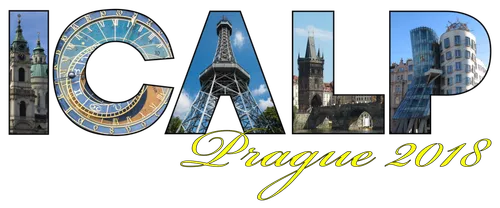 In the Logic, Semantics, Automata and Theory of Programming track of the 45th International Colloquium on Automata, Languages, and Programming (ICALP), three out of 30 accepted papers are by members of the department. ICALP is one of the most selective and longest established international conferences in computer science, and the flagship annual event of the European Association for Theoretical Computer Science. The papers are:
In the Logic, Semantics, Automata and Theory of Programming track of the 45th International Colloquium on Automata, Languages, and Programming (ICALP), three out of 30 accepted papers are by members of the department. ICALP is one of the most selective and longest established international conferences in computer science, and the flagship annual event of the European Association for Theoretical Computer Science. The papers are:
- Reducing CMSO Model Checking to Highly Connected Graphs by Ramanujan M. S., Daniel Lokshtanov, Saket Saurabh and Meirav Zehavi
- O-Minimal Invariants for Linear Loops by Shaull Almagor, Dmitry Chistikov, Joel Ouaknine and James Worrell
- When is Containment Decidable for Probabilistic Automata? by Laure Daviaud, Ranko Lazić, Marcin Jurdziński, Filip Mazowiecki, Guillermo Perez and James Worrell
Dr. Gihan Mudalige Awarded a Royal Society Industry Fellowship
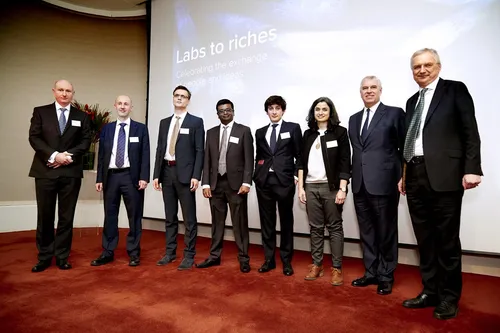
Dr. Gihan Mudalige has been awarded a 4-year, Royal Society Industry Fellowship to work with Rolls Royce plc., on their turbomachinery design simulation applications from September 2018.
Companies such as Rolls-Royce, crucially depend on High Performance Computing (HPC) based numerical simulation applications for the design of turbomachinery. These complex multi-physics and engineering applications, predominantly based on computational fluid dynamics (CFD), even in their simplest form, provide insights into aspects of aircraft engines which could not otherwise be achieved in the absence of physical testing. Developing such simulation applications is difficult and expensive, taking years to write, test and verify. They can easily contain millions of lines of code. Consequently, such programs have lifetimes of decades compared to the supercomputers that run them, which advances every 2-4 years. In the next five years, HPC systems are expected to reach thousand times the capabilities of current systems, attaining exascale (1018) performance where a single system can perform million-trillion computations every second. The range of processor architectures, networks, memory, their configurations and scale make it difficult to know what type of systems will dominate exascale machines and how best to programme them to gain optimal performance. Poor performance means less simulation for your money or worse, a completely inoperable suite of codes. Such an outcome will mean a significant loss of investment. The underlying objective of this fellowship project is to re-design Rolls-Royce’s simulation codes to meet these challenges. This work will utilize the OP2, high-level embedded Domain Specific Language developed by Dr. Mudalige and his research collaborators at University of Oxford, PPCU Hungary and Imperial College London, aiming to re-engineer Rolls-Royce’s CFD applications suite and deploy it for production simulations.
Photo (© The Royal Society): The Royal Society Industry Fellows of 2018 (Round 1): from left to right Duncan Maclachlan, Steve Morgan, Del Atkinson, Gihan Mudalige, Anas Al Rawi, and Aurora Cruz-Cabeza, with HRH Prince Andrew, The Duke of York and Prof. Andrew Hopper, Labs to Riches presentation event, 20 March 2018, at the Royal Society head office in London.
Dr Laurent Doyen is a new Rutherford Visiting Fellow
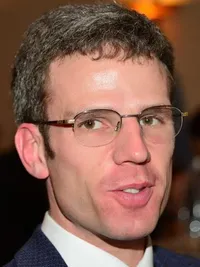 The Department will be welcoming Dr Laurent Doyen of CNRS and ENS Paris-Saclay as a Rutherford Visiting Fellow in 2018/19. This prestigious funding, whose aim is to attract top global talent into the UK, will allow Dr Doyen to collaborate closely with Dr Laure Daviaud, Dr Marcin Jurdzinski and Dr Ranko Lazic of DIMAP, as well as Dr Nathanael Fijalkow of the Alan Turing Institute, on cutting-edge research on fast algorithms for synthesis of safe, smart and adaptive controllers.
The Department will be welcoming Dr Laurent Doyen of CNRS and ENS Paris-Saclay as a Rutherford Visiting Fellow in 2018/19. This prestigious funding, whose aim is to attract top global talent into the UK, will allow Dr Doyen to collaborate closely with Dr Laure Daviaud, Dr Marcin Jurdzinski and Dr Ranko Lazic of DIMAP, as well as Dr Nathanael Fijalkow of the Alan Turing Institute, on cutting-edge research on fast algorithms for synthesis of safe, smart and adaptive controllers.
Professor Graham Cormode, the University of Warwick and Alan Turing Institute Liaison Director, commented:
Dr Doyen's Rutherford Visiting Fellowship will provide a major boost to building world-leading and long-lasting collaborative links among the Alan Turing Institute, the DIMAP multi-disciplinary research centre at Warwick, and LSV at ENS Paris-Saclay. The latter is an established European centre of excellence in logical aspects of computer and data sciences.
Combating oral cancer in Pakistan
Oral cancer is Pakistan’s most prevalent cancer, likely caused by the widespread use of smokeless tobacco, and poor oral hygiene. Researchers at the University of Warwick, led by Professor Nasir Rajpoot, in collaboration with University Hospitals Coventry, Warwickshire NHS Trust and a cancer hospital in Pakistan, are using EPSRC Impact Acceleration Account funding to develop a new and revolutionary digital pathology system to analyse image data for cancerous samples, leading to better diagnosis and treatment.
This news item first appeared in EPSRC Pioneer: https://www.epsrc.ac.uk/newsevents/pubs/pioneer18/
BBSRC funding success for Till Bretschneider
Prof Till Bretschneider has been successful with a £0.5M BBSRC grant application ‘Reconstructing cell surface dynamics from lightsheet microscopy data’ and will work with a team at MRC LMB Cambridge (Dr Rob Kay) and the Warwick Medical School (Prof Andrew McAinsh and Dr Karuna Sampath) on this research from October 2017. They will develop new image-based computational modelling tools to investigate the biochemical regulation and physical forces that shape the cell membrane during cell motility and uptake of fluid. Both are important processes in embryonic development, tumour metastasis, and the immune response. The work will benefit from state of the art microscopy in Warwick’s Advanced Bioimaging Research Technology Platform that allows to acquire time series of 3D scans of single cells at high spatial and temporal resolution.
Ranko Lazic appointed Leverhulme Research Fellow
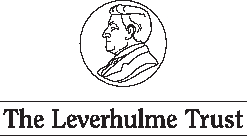 Dr Ranko Lazic has been awarded a Leverhulme Research Fellowship for the 2017/18 academic year, to work on the Petri nets reachability conjecture.
Dr Ranko Lazic has been awarded a Leverhulme Research Fellowship for the 2017/18 academic year, to work on the Petri nets reachability conjecture.
Petri nets, also known as vector addition systems, are one of the most prominent models of concurrency, and their study is a vibrant research area. They have been used to discover bugs and eliminate vulnerabilities in network protocols, concurrent software, business processes, hardware circuits, and control systems.
Professor Artur Czumaj, head of the Foundations of Computer Science research group, has commented:
This prestigious fellowship will further strengthen the internationally leading research in theoretical computer science at Warwick, which recently has been also greatly boosted by the new permanent appointments of Dr Sayan Bhattacharya and Dr Dmitry Chistikov.
Dmitry Chistikov joins the Department as a new Assistant Professor
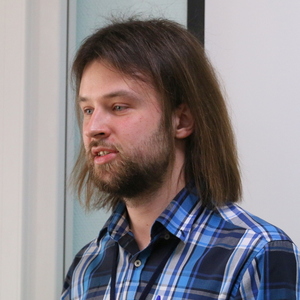 The Department is welcoming our new Assistant Professor Dmitry Chistikov, who will be associated with the Division of Theory and Foundations (FoCS) and the Centre for Discrete Mathematics and its Applications (DIMAP).
The Department is welcoming our new Assistant Professor Dmitry Chistikov, who will be associated with the Division of Theory and Foundations (FoCS) and the Centre for Discrete Mathematics and its Applications (DIMAP).
After obtaining his Candidate of Sciences (equivalent to PhD) degree at the Department of Computational Mathematics and Cybernetics of Moscow State University, Dmitry was a postdoctoral researcher at the Max Planck Institute for Software Systems, as wel as at the University of Oxford.
The general area of Dmitry's research is theoretical computer science. In particular, he is interested in theoretical foundations of verification: its algorithmic aspects (decision and counting problems) as well as combinatorial aspects (extremal properties and characteristics of mathematical models of computation).
For more information about Dmitry's research, please see his web page.
